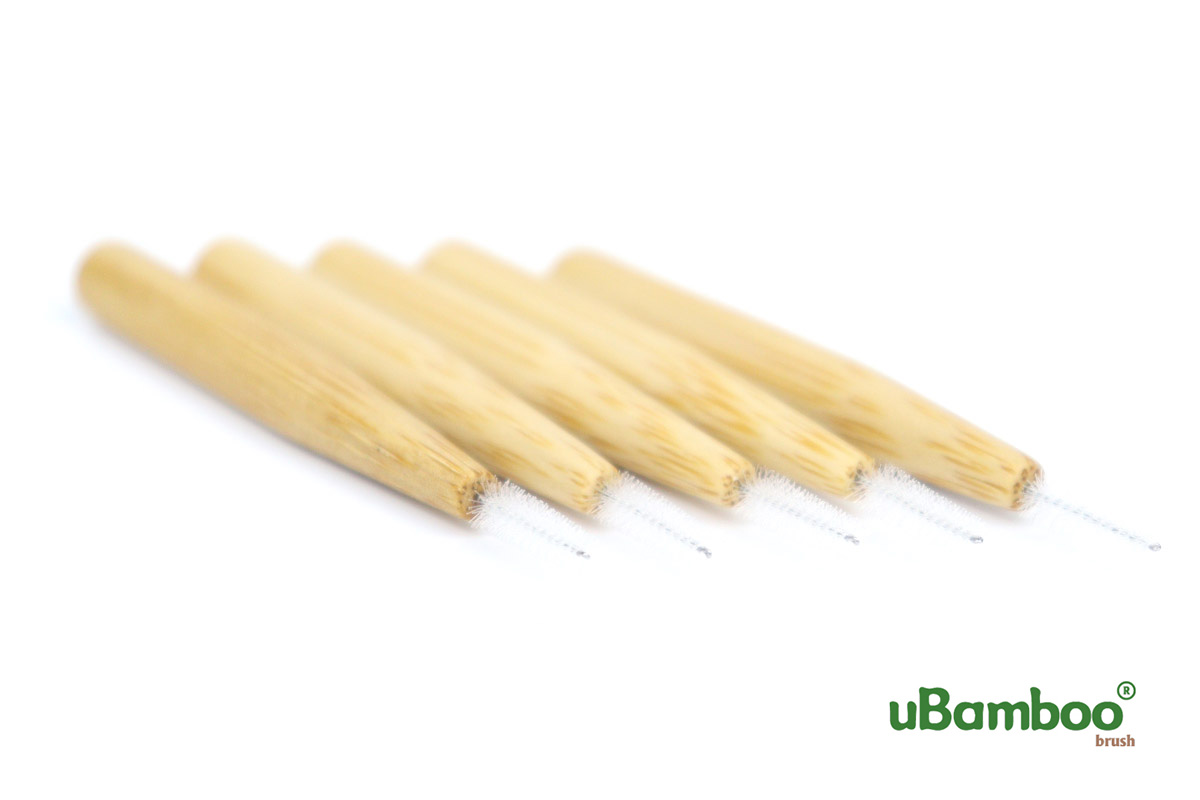WHY YOU NEED AN INTERDENTAL BRUSH TO CLEAN YOUR TEETH
Brushing your teeth is not only important for your dental hygiene, but also for your appearance and fresh breath. While you won't always have a toothbrush and toothpaste at hand, you can certainly keep an interdental brush in your pocket or bag. These little-known guys are used to clean between your teeth. If you don't like flossing around your fingers, an interdental brush might be right up your alley. In fact, a study by the National Center for Biotechnology Information showed that interdental brushes are more effective than flossing at removing plaque when used with a toothbrush. You can stick with flossing, or you can see if an interdental brush is right for your teeth.
The importance of interdental cleaning
Proper interdental cleaning is important to remove food particles and plaque that can lead to tooth decay, cavities and even gingivitis, according to the American Dental Association, or ADA. In fact, the ADA states that "using an interdental cleaner, such as flossing, is an important part of taking care of your teeth and gums." A regular toothbrush is important for oral hygiene, but it can't reach the crevices where food is most likely to accumulate. Carrying floss and other cleaning tools with you is important for your oral health.
What are interdental brush picks?
Interdental brushes or toothpicks are designed to help you clean the spaces between your teeth without the need for a toothbrush and/or traditional floss. These tools also come in a variety of styles. Some have a small strip of floss tied to the handle, some look a lot like fancy toothpicks, and some actually have soft brushes on them, similar to spools in mascara wands. Each device has its own unique advantages, so when deciding which device is best for your individual needs, it's best to choose the most versatile one. Here's some knowledge about them and how they work:
They are small brushes, usually round or tapered.
The bristles are attached to a thin wire (almost like a pipe cleaner) with an easy-to-grip handle on the other end.
Some designs are short and some are long, like a toothbrush.
Most can be used a few times before discarding (like some razors)
They come in different sizes depending on the size of the opening between the teeth.
It is recommended to use different sizes for your front and back teeth.
Similar to flossing, they'll be inserted between your teeth, scrubbing back and forth, up and down, to remove plaque and food debris.
What are the challenges of flossing?
Interdental brush and dental floss. It's a good matchup. While you can use a more traditional method of flossing, it's not for everyone. In fact, according to U.S. News & World Report, only 1 in 3 countries floss daily. It's the leading interdental cleaner, which is disturbing. This is where an interdental brush can be a great option. But like anything, there are pros and cons.
Advantages of interdental brushes:
it's easier to use
Reduces plaque and gingivitis, if not better than flossing.
accepted by the patient
Disadvantages of interdental brushes:
Not as long as flossing
it may also cause occasional bleeding
Harder to find and buy than floss
Can reshape interdental tissue
A wider variety of materials, shapes, flavors and flosses available
Who benefits from interdental brushes?
Some people with special preferences and medical conditions may opt for interdental brushes. They would be people like this:
Reduced mobility: People with joint problems such as arthritis and older adults may find brushes more comfortable than flossing. They are also suitable for cleaning dentures, bridges, implants and gums.
Braces: While flossing can be challenging to use with or around braces, a thin brush can be moved around the wire.
Space between teeth: People with larger spaces between teeth may find brushes better for removing plaque and debris between teeth.
Dislikes flossing: The technique required to properly floss is not easy to master, so many people may find brushes easier to use.
Now that you've done your interdental cleaning and can properly evaluate flossing versus interdental brushing, you should be able to decide which option is best for you. Whichever you choose, make sure to regularly clean between your teeth as directed by your dental team - it's not something you want to brush aside.
What is the best interdental cleaner?
Most dentists will agree that the best household interdental cleaner is standard floss. This simple yet effective tool removes even the hardest-to-reach food particles and prevents tooth decay and other oral health problems. However, most people don't have dental floss in their pockets and bags, and few even hide their toothbrushes after meals for proper oral hygiene. When choosing an interdental tool, look for one that is versatile enough to get the job done thoroughly. A brush-like pick with a flexible head is ideal because it doubles as a quick toothbrush, toothpick, and floss.
Pay attention to the environment
Having the right tools for proper oral care is important, but it's also important to protect the environment. That's why it's important to buy dental care products that are responsibly manufactured with sustainability in mind. Many of today's most popular interdental cleaners are single-use and, sadly, made from plastic that will never be recycled. uBamboo's interdental bristles are made from sustainable bamboo, and since they come with individual caps, they can be rinsed and reused. They are available in two sizes - small and assorted - to ensure a perfect fit for both children and adults.
Carrying interdental brush picks with you is a great way to ensure the best possible care for your teeth and gums. uBamboo's Eco-Friendly Interdental Bamboo Brush Picks are the perfect choice for anyone who values protecting the environment and their oral health.
You May Also Like
-
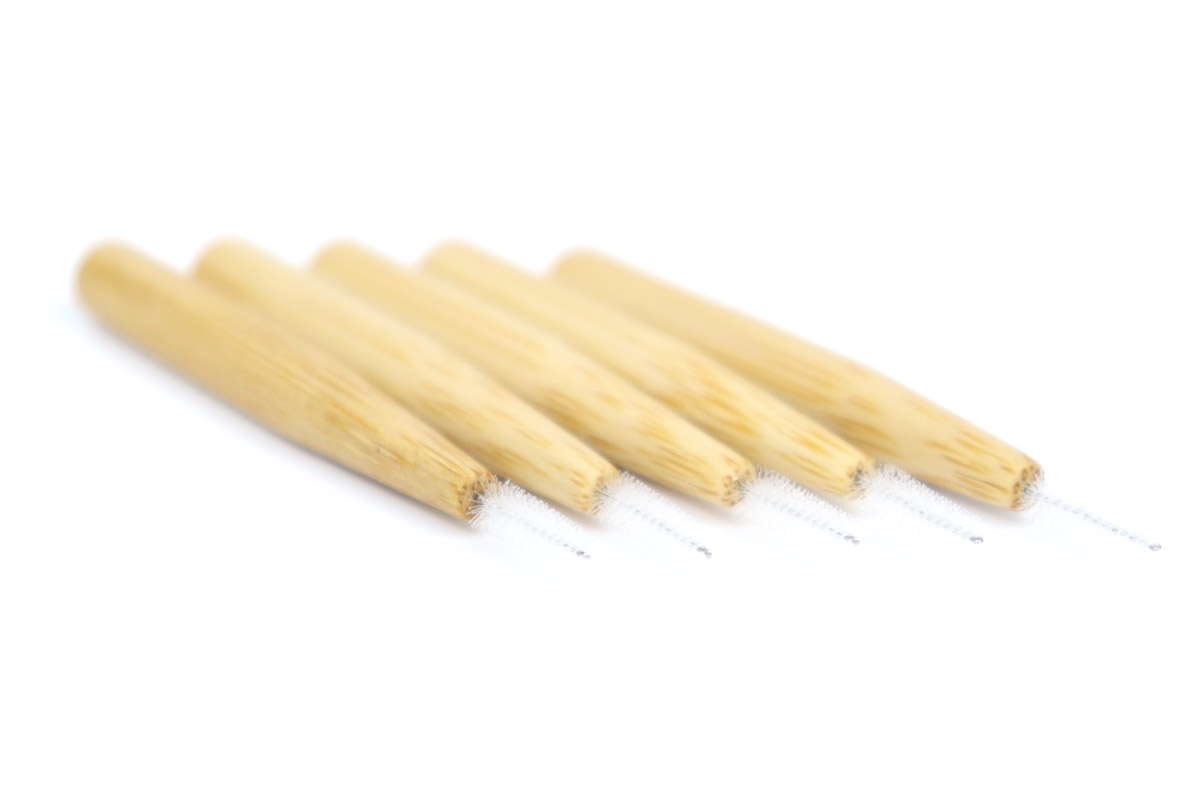
uBamboo Sustainable Bamboo Interdental Brush
-
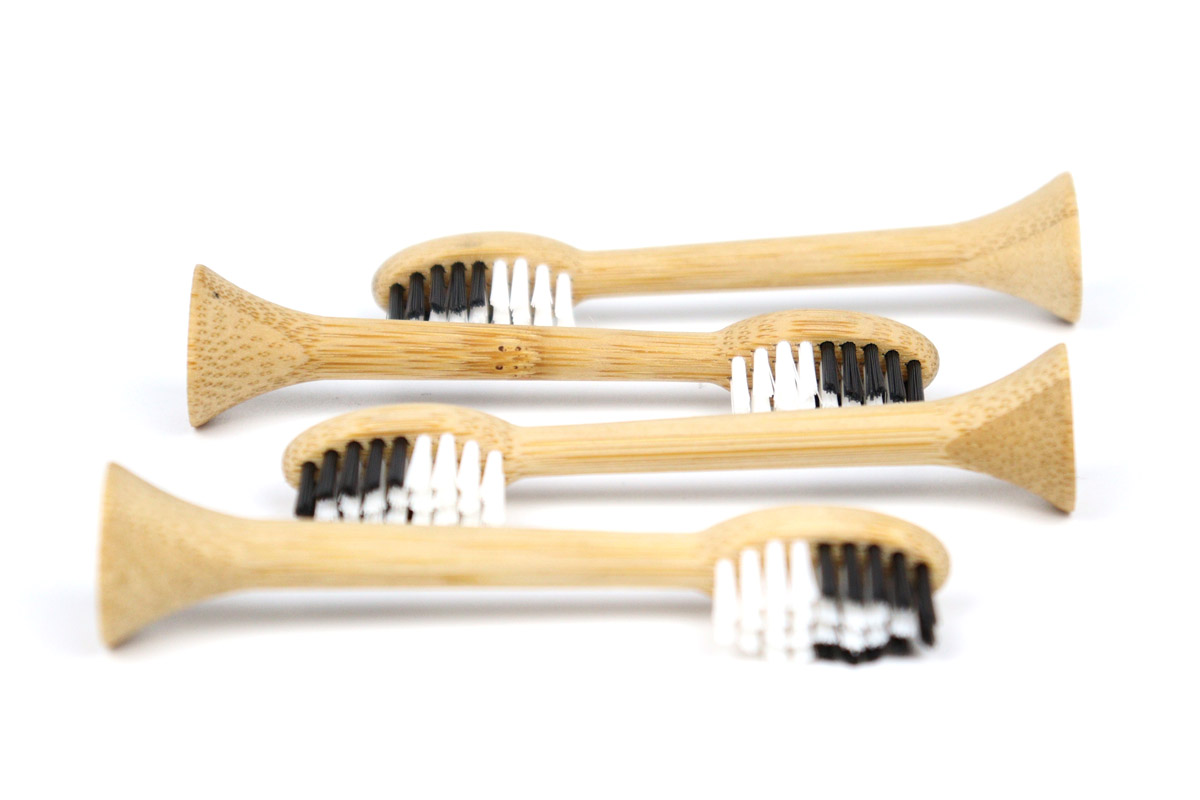
uBamboo Replacement Bamboo Electric Toothbrush Heads compatible with Phillp sonic
-
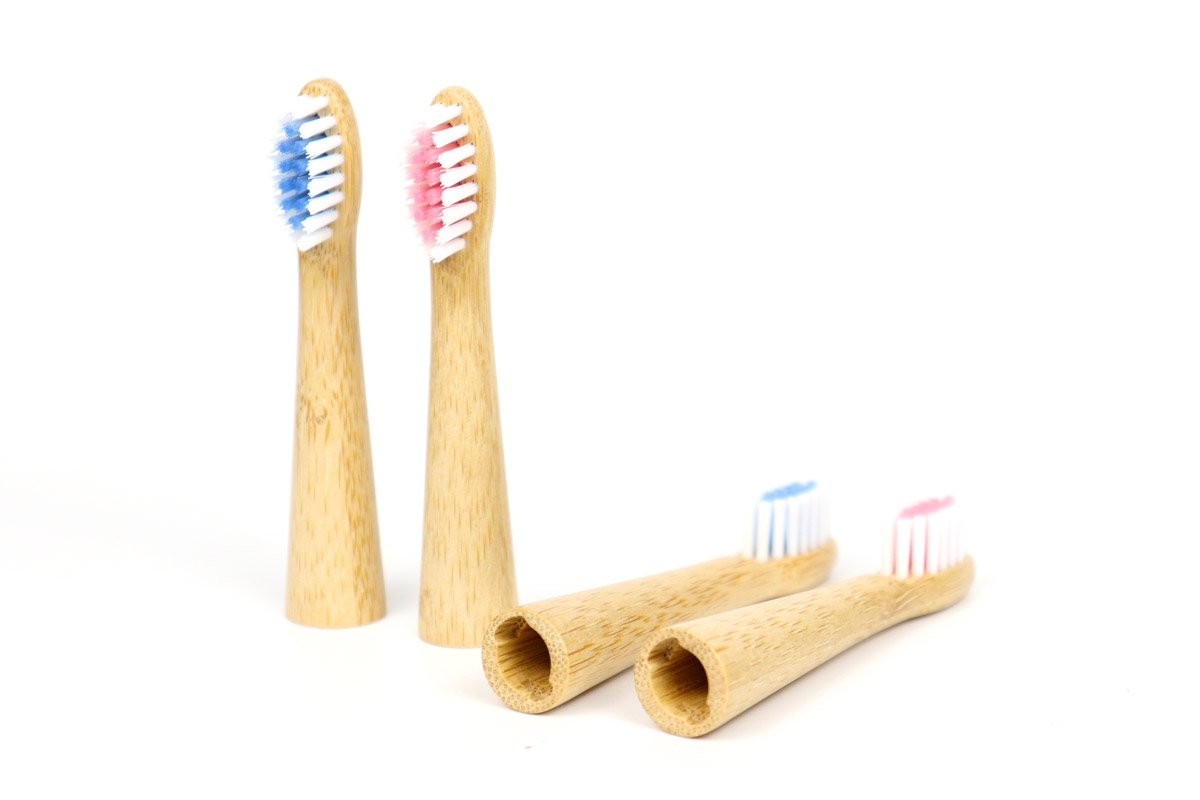
uBamboo Replacement Bamboo Electric Toothbrush Head compatible with Orel B Pulsonic
-
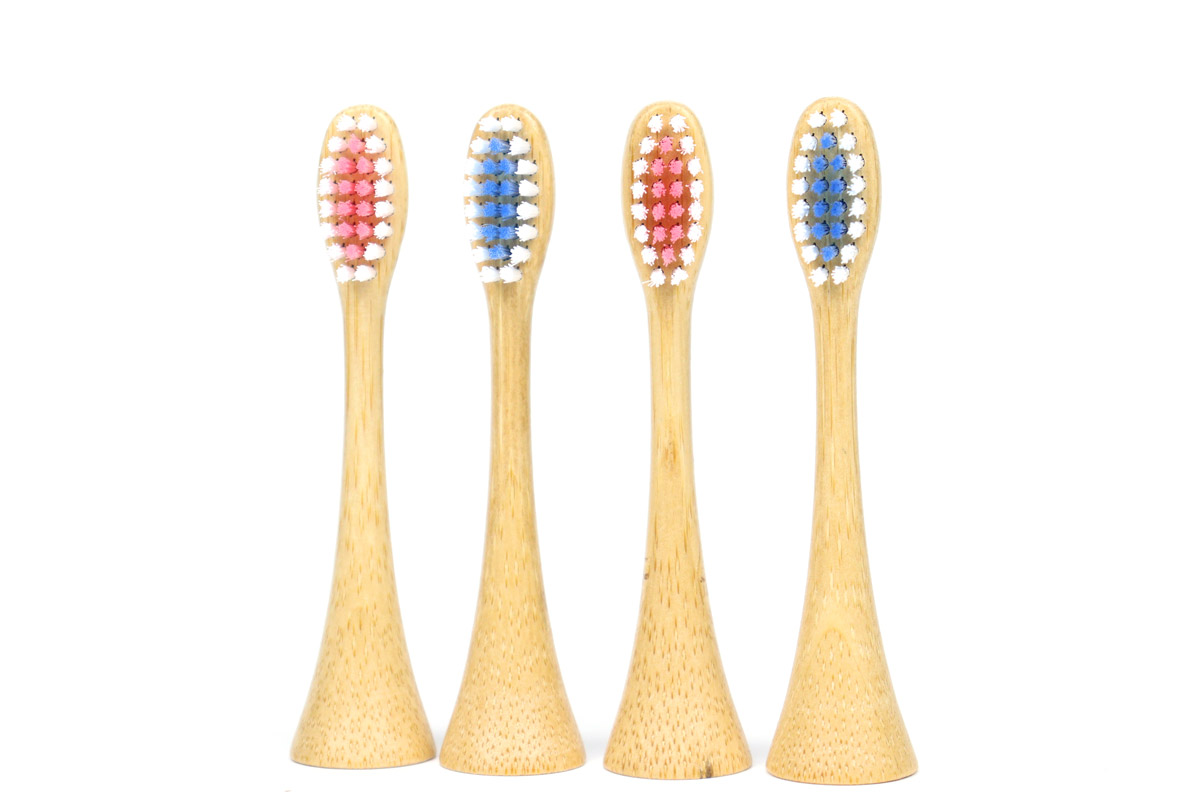
uBamboo Electric Bamboo Replaceable Toothbrush Head compatible with Happybrush
-
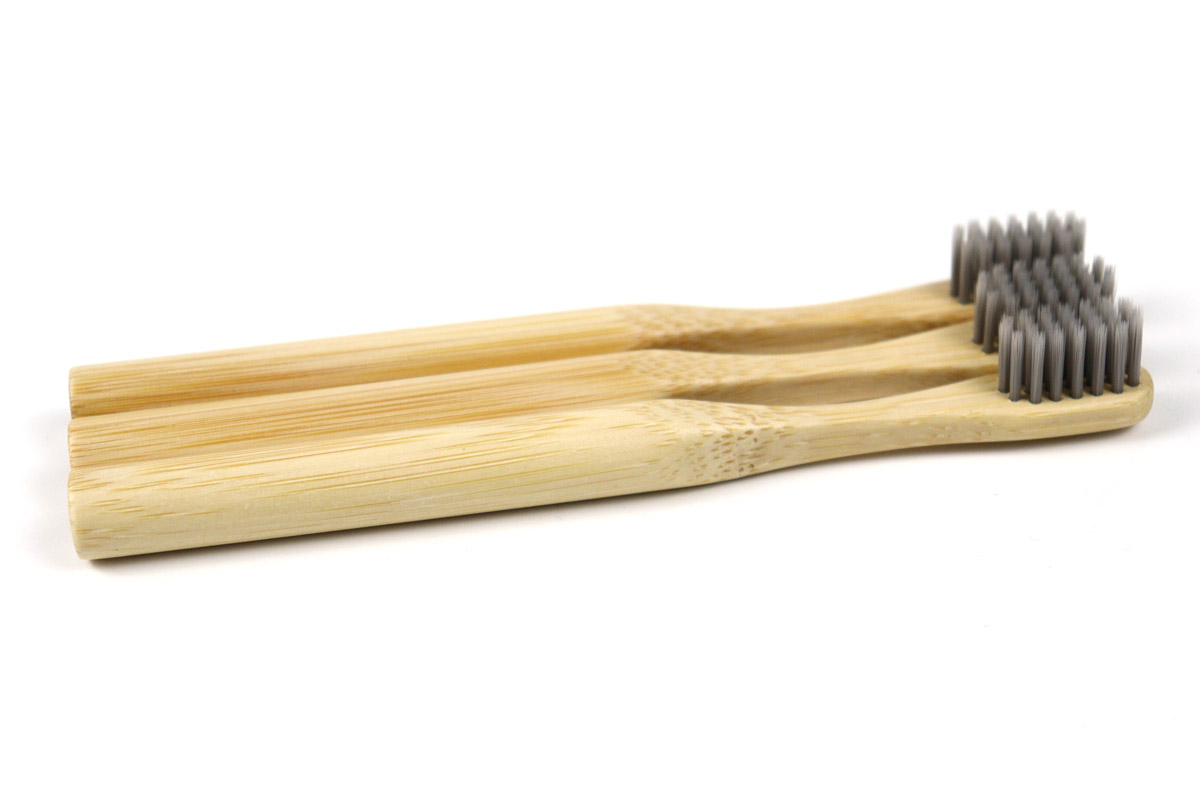
uBamboo Kids Round Bamboo Toothbrush Gemini White Charcoal Binchotan Double Sides Tapered Filament Head



